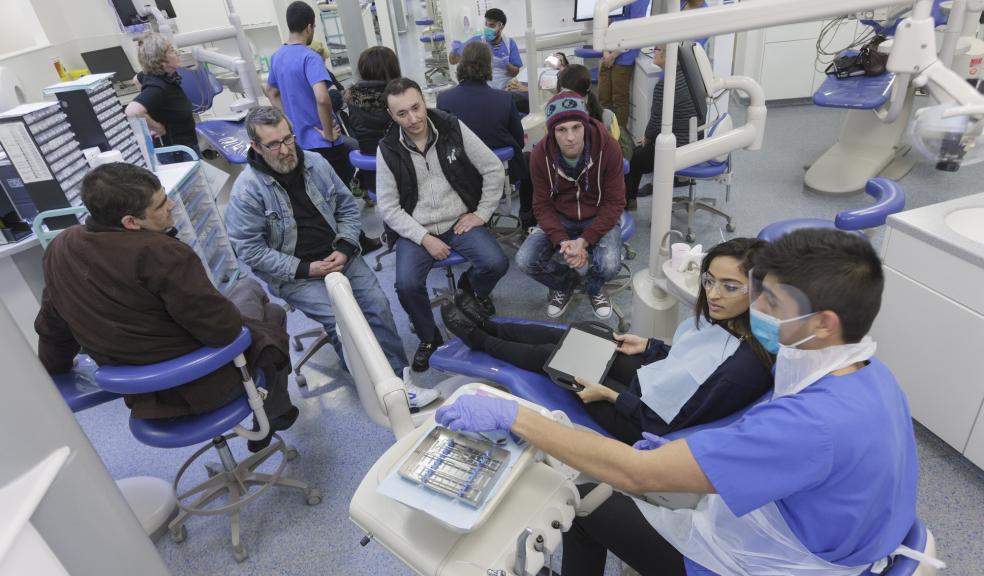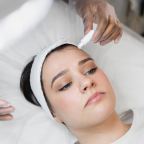
Students help improve dental care for homeless
A group of second year dental students from Plymouth University, supported by the Peninsula Dental Social Enterprise, are working with residents from the Salvation Army’s Devonport Lifehouse homeless centre in Plymouth, to help them become more aware of how to maintain good oral health and access dental treatment.
The students have had several sessions with the residents and those in charge of their care. These sessions have helped both the students and the residents to scope needs and how to address them.
This included a visit to Devonport Lifehouse where students set out stations looking at tooth brushing, cleaning between teeth, denture care, diet, smoking and alcohol and the effects they have on teeth, and the facilities at Plymouth University Peninsula Schools of Medicine and Dentistry’s Dental Education Facilities (DEFs)
One key area has been access to dental care. Some of the residents were not aware that they were eligible for care at the DEFs, some were embarrassed to seek help with long-standing dental problems, and some had been put off seeking out dental care because of unfortunate experiences with dentists in the past.
The students set about addressing these problems by arranging a visit to the Devonport DEF. They demonstrated a first appointment, with one of their number as the ‘patient’, and showed the residents the entire process, from arriving at reception to meeting their dental student and clinical supervisor, obtaining consent for treatment, carrying out a comprehensive medical, dental and social history, and conducting a new patient examination and treatment plan.
The students also designed a pocket card for residents to take away, with contact details and reminders for appointments.
As a result of the visit, a number of the residents registered for treatment.
As not all Devonport Lifehouse residents were able to attend the visit, the students are now planning to work with the Peninsula Dental Social Enterprise to produce a film of a first appointment which can be shown to residents at regular times of the year. The team is also exploring setting up an email appointment reminder service for Salvation Army support workers to help remind residents of their appointments.
Devonport Lifehouse residents found the experience useful. Their comments included: “They are very committed – it’s a vocation – and will make pretty good dentists. Nice genuine people”; “I enjoyed talking to them and felt comfortable”; It was very helpful – I learned things I didn’t know and I liked how they talked to me.”
Lyndsey Withers, who oversaw the project from Devonport Lifehouse, said: “We really value the input of dental students, and students in other health areas from Plymouth University. Good dental health is important, and getting our residents ‘orally fit’ gives a great boost to their confidence and self-esteem. The wonderful thing about working with the dental students is that it is about more than dental care – they treat our residents with dignity and respect, and that is immensely important and beneficial.”
Professor Robert Witton, Director of the Peninsula Dental Social Enterprise, added: “Devonport Lifehouse is one of many partners we work with in the community, to help address dental health inequalities and issues around access to dental care. Student projects like this one are vital to our educational programme and help us to create well-rounded, empathetic dentists with experience and understanding of the full patient spectrum. We couldn’t achieve this without organisations like the Salvation Army and Devonport Lifehouse, and we are grateful to them for their support.”











